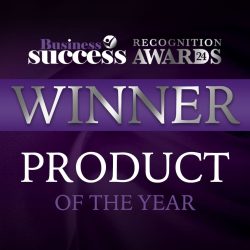When it comes to iconic brands, few names are as recognisable as Levi’s. Known for their classic denim and trade marked designs like the 501 jeans and distinctive stitching, Levi’s has built a reputation over the past century that carries significant value. But what happens when another brand tries to capitalise on this legacy? This is exactly what’s at the heart of the ongoing legal battle between Levi Strauss & Co. (“Levi’s”) and Japanese apparel company FullCount Co. Ltd.
The Ongoing Battle: A Decade of Disputes
Levi’s recently filed a lawsuit against FullCount, accusing them of continuing to infringe on Levi’s trade marks despite being hit with court injunctions in previous legal battles. This latest case, filed in September 2024, isn’t just about trade mark infringement – it’s about contempt of court.
FullCount has already been taken to court multiple times by Levi’s, with the first lawsuit dating back to 2007. Again in 2016, FullCount was permanently barred from manufacturing or selling any garments that infringed on Levi’s trade marks, including their well-known Tab, Arcuate stitching, and 501 marks. Yet, Levi’s alleges that FullCount has ignored these court rulings, continuing to profit from designs that mimic Levi’s famous trade marks.
What’s at Stake?
So, why does Levi’s continue to fight this battle? The answer lies in the value of its brand. Levi’s trade marks – particularly the red tab on the back pocket and the 501 mark – are deeply tied to its identity and reputation. When other companies use similar designs, it’s more than just copying; it can confuse consumers, damage brand trust, and dilute the value of these protected assets.
Levi’s has built its name over more than 150 years, and they’re understandably protective of it. The company argues that FullCount’s actions – including the creation of jeans labelled as “1933 501 jeans” and the use of phrases like “LEVI” and “San Francisco” on product labels – are a blatant attempt to deceive consumers into thinking they’re buying genuine Levi’s products. This not only harms Levi’s but also threatens to undermine the entire intellectual property system by disregarding previous court rulings.
Why Trade mark Protection Matters
At the heart of this legal battle is a key principle: trade marks are not just logos or names; they represent a brand’s reputation, quality, and trustworthiness. When a company registers a trade mark, they gain the exclusive right to use that mark in connection with their goods or services. It allows consumers to distinguish between genuine products and imitations.
In Levi’s case, their trade marks – like the Arcuate stitching on the back pockets and the 501 name – have become synonymous with quality and heritage in the denim world. When these marks are copied or misused by other companies, it dilutes their distinctiveness, weakening Levi’s control over its brand.
What’s the Impact of Trade mark Infringement?
FullCount’s continued infringement, according to Levi’s, is not just about unauthorised use. Levi’s accuses FullCount of “willful and blatant” violations, even increasing the production and promotion of infringing products after previous legal actions. By selling garments that closely resemble Levi’s designs, FullCount could cause confusion among consumers, leading them to believe they’re purchasing authentic Levi’s products when, in fact, they are not.
This type of infringement can have serious consequences. Not only does it damage Levi’s ability to protect its reputation, but it also undermines the value of their trade marks. After all, if consumers can’t tell the difference between real and fake Levi’s products, what’s the point of owning a trade mark?
Lessons for Businesses
This is a stark reminder for businesses about the importance of trade mark protection and enforcement. If you’ve taken the time to develop a strong brand and register your trade marks, it’s vital that you enforce those rights when they’re threatened. Failure to do so could result in the dilution of your brand’s value, as we see in the Levi’s case.
On the flip side, it’s equally important to ensure your business doesn’t fall into the trap of unintentionally infringing on another company’s intellectual property. Even if you think a small change in design or wording might set you apart, you could still be violating someone else’s rights. The key is to conduct thorough trade mark searches and seek legal advice before releasing any product that could potentially infringe on an existing mark.
Moving Forward: What’s Next for Levi’s and FullCount?
Levi’s is seeking sanctions against FullCount, arguing that their contemptuous behaviour is damaging to the brand and threatens the legal system’s ability to protect intellectual property. While the outcome of this case remains to be seen, it’s clear that Levi’s is committed to fighting to protect its iconic trade marks.
For businesses, the message is clear: trade marks are powerful tools, but they must be actively protected. Whether you’re a global brand like Levi’s or a small business just starting out, your intellectual property is a valuable asset. Ensuring it’s properly registered and defended is key to maintaining your brand’s reputation and ensuring long-term success.
If you need advice on registering or enforcing your trade marks, get in touch with National Business Register. We specialise in helping businesses protect their intellectual property. Call us on 0800 069 9090 or email us at info@nbrg.co.uk to ensure that your brand stays safe from infringement and your rights are secured.
Don’t leave your IP to chance – let’s protect your business together.







